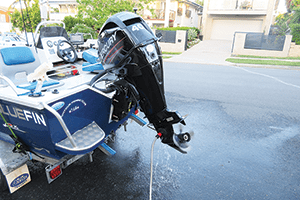




GETTING out on the water in your own boat is one of life’s simple pleasures.
It can be very pleasant on calm days and is even more enjoyable when you bring home a nice catch of fish. In some families, boating knowledge is passed down through the generations and as a result some young boaters are well prepared when they buy their first boat.
For others such as myself growing up in a country town with a dad who preferred the bush over the water, that knowledge has to be built from scratch.
I’ve therefore gone out of my way over the past 23 years or so of boating to learn as much from others as I can, be it asking questions, listening, reading or simply observing others on the water or preparing their boats.
Now I feel obliged to help others with safe boating tips. Hopefully these will be useful either for those buying their first boat or those who might already own a boat but perhaps are not taking enough care of it, or indeed enough care on the water as they should be.
Safety essentials, preparation and boating tips
The very tragic deaths of two boaters on Moreton Bay earlier this year are a stark reminder that safety must be your top priority when preparing for or getting out on the water.
Carrying the essentials
It is true that each state and territory has different compulsory items that must be carried on your boat.
Quite clearly, these are must-haves unless you want to risk a fine or worse still, your own life.
But there are also a range of other bits and pieces that really every boatie should have.
These include:
- All safety gear including flares, torch, V sheet, reflective mirror, whistle and emergency blanket. These are best stored in a waterproof floating grab bag within reach of the skipper.
- An extinguisher for fuel fires.
- Quality life jackets (be sure to know their expiry dates).
- A bailing bucket.
- A set of oars.
- Positive buoyancy under the seats or floor. If the boat doesn’t have it, add it.
- A marine starter battery that can double for a few small accessories such as lights.
- If you use a sounder and electric motor, you will also need a deep-cycle battery.
- Spare fuses for lights, battery and sounder connections.
- A tool kit including pliers to cut through treble hooks and a small length of rope to pull start your motor if necessary (some motors have these under the motor cowling or top cover).
- Sufficient drinking water.
- In case of GPS/sounder failure it can pay to carry local marine charts in areas you are less familiar with.
- A suitable anchor with a ‘rated’ D shackle (the ones with coloured pins) to ensure it doesn’t fail on you under load.
- If you plan on fishing reef and sand areas, carry both types of anchors.
- Ensure you use double-braided or twisted nylon anchor line, not just some dodgy cheap ‘rope’.
- Finally, a first-aid kit.
- Apart from what I consider must-haves, boaties should also consider the following:
- Marine radio (even if not compulsory in calm waters).
- Join the Australian Volunteer Coast Guard (this could save you an expensive towing bill if you ever break down).
- A fire blanket.
- A sounder with GPS.
- Undertaking a skipper’s course, particularly if you are going offshore.
- A portable emergency beacon.
- A phone in a floating, waterproof mobile phone case.
Checklists and safety tips
Anticipation is always high prior to a fishing trip, but before you hit the water a few basic steps should be followed to make sure your day isn’t spoilt from lack of preparation. Particularly when you start out, it is worth having a list to check before each trip. After a while these checks become natural but trust me, you can and will forget things (like putting the bungs in!), so getting into a routine from the start of your boat purchase is good practice.
Before you leave home, a few things you should check include: boating essentials
- Battery charge – making sure it is fully charged the night before.
- Fill up your fuel tank. Always make sure you have more fuel than you think you’ll need. Consider buying premium fuel. It only costs a couple of dollars more for smaller tanks and the cleaning agents in the fuel will ensure you get more life out of your engine.
- Ensure nothing in your boat is unsecured or you could be fined when travelling to the ramp.
- Check the boat is secured to the trailer winch tightly with the hook, safety chain and D shackle.
- Make sure your trailer lights are connected and are working.
- Check the trailer hitch is securely fixed to your tow ball and the safety chain is connected to the car with a rated D shackle.
- Once you are at the boat ramp, you need to remember a few more things.
- Some are common courtesy if you want to avoid ‘ramp rage’.
These include:
- Prepare your boat for launching in the ‘rigging’ area out of the way of others. Do not back down the ramp until you have done this.
- Remove the tie down, check your bungs are in but do not remove the safety chain on your boat until you have safely backed down (the next boat that ends up on the ramp due to this mistake won’t be the last).
- Do not back down the ramp with your headlights on in the dark if other boaters are trying to back down or come up because it will temporarily blind them.
- When ready to go, never start the motor with someone in the water.
- Attach the ‘kill strap’ for the motor to your wrist (in case you are thrown from the boat or knocked unconscious).
On the water:
- Never have someone ride on the bow of the boat, including short distances moving anchoring location.
- Slow down around sharp bends in rivers.
- Don’t cut the corner in rivers. Take them wide to give yourself time to see an oncoming boat.
- Evenly distribute weight through the boat, either up front and back or across both sides.
- Never impede the line of sight of the skipper.
- After heavy rain, slow down due to floating logs and debris.
- Stick to daylight hours until you’ve built up enough experience and knowledge of an area.
Post-trip maintenance: boating essentials
- Wash the boat and trailer after every saltwater trip to prevent rust.
- Run fresh water through the motor after every trip (where possible) to keep it in good condition.
Some quarterly checks:
- Battery water levels.
- Grease in trailer hubs.
- Check the use-by date on safety gear, life jacket and gas cylinders.
- Inspect the underside of the boat for cracks or damage, unless you hit an object when out, in which case it should be checked immediately.
Finally, as a boatie, have some respect for others:
- Respect speed signs and other boaters and water users.
- Slow down when passing others, particularly those fishing, anchored or kayaking.
- Never drive over someone’s fishing lines, such as when they are trolling.
- Give people fishing space when anchoring or drifting nearby.
- Never anchor in front of where someone is already drifting.
- Never touch another person’s crab pots or floats! Never!
I hope these safety guidelines and protocols help you and your kids to be safer on the water.
For more tips and reports, please jump on and like my Ontour Fishing Australia Facebook and Instagram pages.
boating essentials boating essentials boating essentials boating essentials boating essentials boating essentials
boating essentials boating essentials boating essentials boating essentials boating essentials boating essentials
 Bush ‘n Beach Fishing Magazine Location reports & tips for fishing, boating, camping, kayaking, 4WDing in Queensland and Northern NSW
Bush ‘n Beach Fishing Magazine Location reports & tips for fishing, boating, camping, kayaking, 4WDing in Queensland and Northern NSW

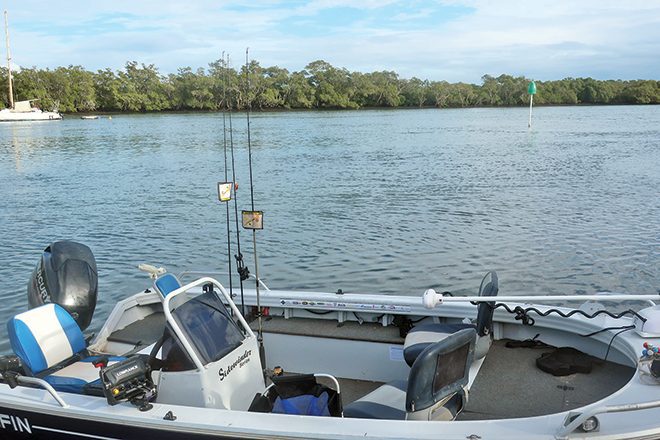




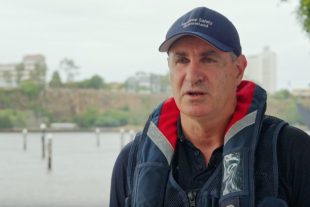
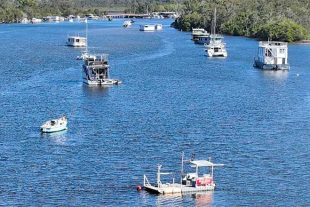
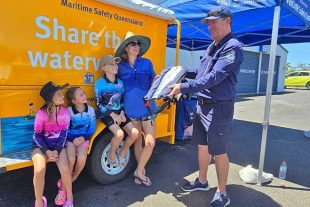
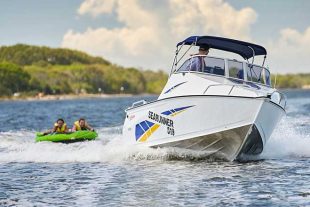
I actually made a floating phone case for new waterproof phone s called the phone floaty. I’d be happy to send you one out to try if you think you like it 🙂
This is a fantastic, informative and very important article for Boaters. Thank you so much for sharing this great info.